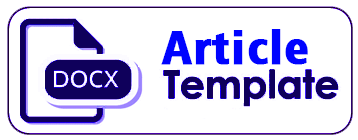Article Retraction & Withdrawal
ARTICLE RETRACTION
Mahakarya Journal of Community Services (MAJOCOS) is committed to playing its part in maintaining the integrity of the scholarly record; therefore, on occasion, it is necessary to retract articles. Articles may be retracted if:
- There is a significant scientific error that would invalidate the article’s conclusions, for example, where there is clear evidence that findings are unreliable, either as a result of misconduct (e.g., data fabrication) or honest error (e.g., miscalculation or experimental error).
- The findings have previously been published elsewhere without proper cross-referencing, permission, or justification (i.e., cases of redundant publication).
- There are ethical issues such as plagiarism (appropriation of another person’s ideas, processes, results, or words without giving appropriate credit, including those obtained through confidential review of others’ manuscripts) or inappropriate authorship.
In order to ensure that retractions are handled according to publication best practice and in accordance with COPE retraction guidelines, Mahakarya Journal of Community Services (MAJOCOS) adopts the following retraction process:
- An article requiring potential retraction is brought to the journal editor’s attention.
- The journal editor should follow the step-by-step guidelines according to the COPE flowcharts (including evaluating a response from the article’s author in question).
- Before any action is taken, the editor’s findings should be sent to the Ethics Advisory Board. The purpose of this step is to ensure a consistent approach in accordance with industry best practices.
- The final decision on whether to retract is then communicated to the author and, if necessary, any other relevant bodies, such as the author’s institution, on occasion.
- The retraction statement is then posted online and published in the next available issue of the journal (see below for more details on this step).
Note that if authors retain the copyright for an article, this does not mean they automatically have the right to retract it after publication. The integrity of the published scientific record is paramount, and COPE’s Retraction Guidelines still apply in such cases.
ARTICLE WITHDRAWAL
The author is not allowed to withdraw submitted manuscripts because the withdrawal is a waste of valuable resources that editors and referees spent a great deal of time processing submitted manuscripts and works invested by the publisher. For attention, before the author submits the manuscript through our OJS, the author must approve the checklist we provide.
- If the author requests the withdrawal of his/her manuscript when the manuscript is still in the peer-reviewing process, the author will be punished by paying IDR 100,000.00or USD 35 per manuscript.
- If the withdrawal after the manuscript is accepted for publication, the author will be punished with IDR 300.000,00or USD 20 per manuscript.
- If the article has been published as an “Article in Press” (articles that have been accepted for publication but which have not been formally published and do not have the complete volume/issue/page information) that include errors or are discovered to be accidental duplicates of other published article or are determined to violate our journal publishing ethics guidelines in the view of the editors (such as multiple submissions, bogus claims of authorship, plagiarism, fraudulent use of data or the like), the article may be “Withdrawn “From the Mahakarya Journal of Community Services (MAJOCOS) Withdrawing means that the article content (HTML and PDF) is deleted and replaced with an HTML page and the PDF simply states that the article has been withdrawn. In this case, the author will be punished by paying IDR 300.000,00or USD 20 per manuscript.
- If the authors do not agree to pay the penalty, they will be blocklistedfor publication in this journal for 3 years.
- If the author request to withdraw a manuscript, an official letter signed by the corresponding author and agency leader must be sent to the Editor-in-Chief.





